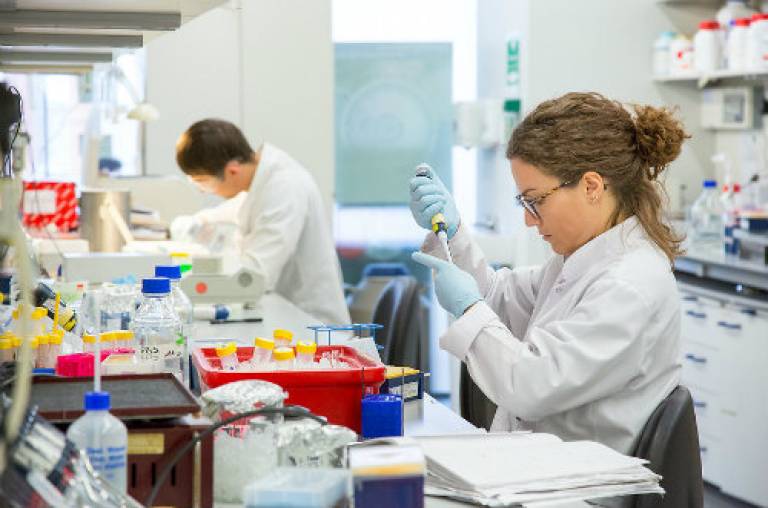Communicating science effectively to experts and non-experts
Fourth year MSci students are able to attend selected lectures from the departmental seminar series. Dr Nazif Alic and Dr Elvira Mambetisaeva (UCL Division of Biosciences) explain.

3 November 2015
A new module, ‘Topics in Current Research’, run by Dr Nazif Alic and Dr Elvira Mambetisaeva (UCL Division of Biosciences) and offered to fourth year (MSci) students, provides an opportunity to attend selected lectures from the departmental seminar series, all of which cover a wide range of research and are given by internationally known scientists.
Encouraging interdisciplinary research
This new module is an initiative to engage Biosciences students in wider research as members of UCL academic community.
It aims to develop students' critical thinking skills for evaluating methodologies and results, shows them how scientific data is disseminated and scrutinised by a scientific community and also teaches them how to communicate science effectively to experts and non-experts (writing and presenting and discussing scientific data).
As a part of the tutorials, students are invited to attend selected seminars series run by the Department of Genetics, Evolution and Environment.
Students prepare an introductory presentation to learn about the research
Students are divided into groups and asked to prepare an introductory presentation at the tutorial prior to the seminar (each group of students is supplied with literature provided by a seminar speaker at our request).
This exercise teaches students to critically analyse scientific data and to be able to present these data to the audience (other students and a tutor) in a concise manner.
Each student’s group presentation is marked by their peers and the tutor.
Then students attend the departmental seminar (Department of Genetics, Evolution and Ecology, GEE) and listen to the speaker whose research they presented to their class prior the seminar.
At the seminar students see how scientists ask questions and how the speaker answers them.
Most importantly, students themselves have the chance to ask the speaker any questions related to the seminar. Students like the idea that they are treated as ‘young scientists’.
After a seminar, students have another tutorial and the group who presented the topic takes questions from their peers and the tutor. Students are assessed on their ability to present and to discuss scientific research. Each student also needs to write a 2,500 words essay (a scientific report) on the research they presented.
Presenting research to the public
Students also take part in tutorials exploring science communication and non-experts.
These tutorials are aim to develop in students the understanding that research is publicly funded and therefore scientists have a duty to communicate their research to the public.
Public understanding of science and media constraints are also discussed.
These tutorials are formed in interactive way: students are asked in groups to re-write an abstract from a scientific paper into a news style piece for the public.
The assessment of this part of the module is to produce a 1000 words essay on a scientific topic given in a style of the ‘New Scientist’ magazine whose readership is both scientists and people non-experts interested in science.
 Close
Close

